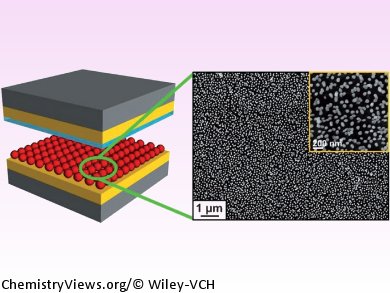Zhong Lin Wang and his team, Georgia Institute of Technology, USA, and the Beijing Institute of Nanoenergy and Nanosystems, China, have developed a triboelectric nanogenerator (TENG) that can be used for the selective detection of mercury(II) ions. The TENG consists of two materials that have different triboelectric polarities. When they come into contact, surface charge transfer occurs, and thus repeated contact and separation of the materials leads to a flow of electrons.
The researchers constructed the TENG from glass plates laminated with gold films. The upper plate is coated with a layer of polydimethylsiloxane, which has a different triboelectric polarity to gold, and the lower plate is coated with a layer of gold nanoparticles. The gold nanoparticles optimized the device performance by acting as a spacer and increasing the contact area of the plates. The different tribolectric polarities between gold nanoparticles and mercury(II) ions means that the TENG can be used as a sensor for the latter species, as the generated current decreases in the presence if mercury(II) ions. To demonstrate this hypothesis, an LED was connected to the TENG, and was extinguished when mercury(II) ions were detected.
This sensor is a sensitive and simple method for analyte detection that may be applicable to other metal ions and biomolecules.
- A Self-Powered Triboelectric Nanosensor for Mercury Ion Detection,
Zong-Hong Lin, Guang Zhu, Yu Sheng Zhou, Ya Yang, Peng Bai, Jun Chen, Zhong Lin Wang,
Angew. Chem. Int. Ed. 2013.
DOI: 10.1002/anie.201300437



